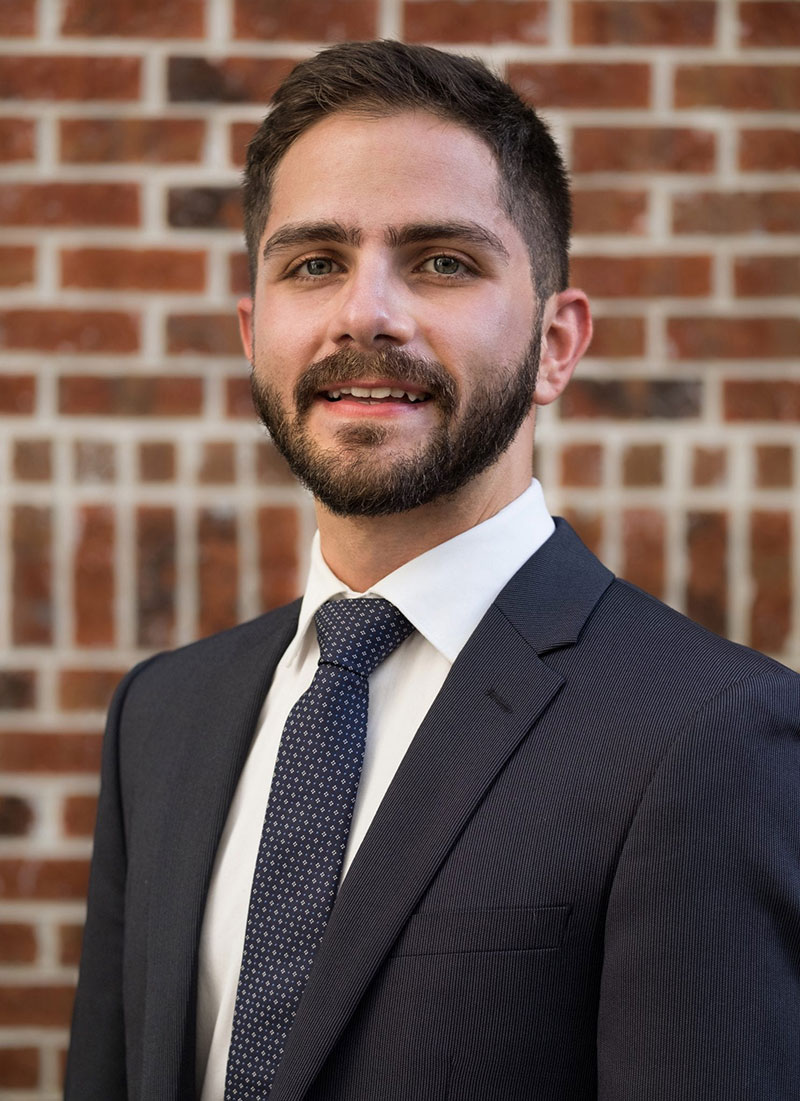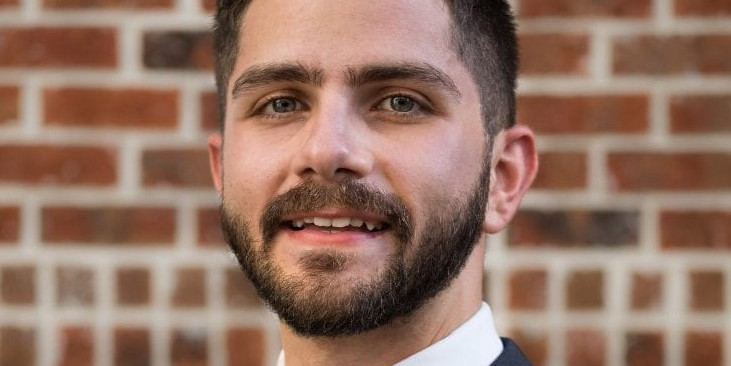Dr. Kareem Sioufi (Class of 2015) is the first UMHS graduate to match in Ophthalmology. Dr. Sioufi is currently finishing his residency at Medical University of South Carolina. Prior to residency, he completed a research internship in ocular oncology at Wills Eye Hospital and a postdoctoral research fellowship year at the Retina service of Wills Eye Hospital.
The UMHS Endeavour spoke to Dr. Sioufi about what first got him interested in Ophthalmology, why med students should consider the specialty, his medical education at UMHS, his research, presenting at the Association for Research in Vision and Ophthalmology (ARVO) annual meeting this year and more.
What initially got Dr. Sioufi interested in eye health and medicine?
“I’ve always had interest in visual pattern recognition, and as a kid I was very fascinated with binoculars and flashlights,” Dr. Sioufi said.
While attending UMHS, Dr. Sioufi was interested in Neurology and MRI brain imaging, and this fostered an interest leading to a Neuro-Ophthalmology observership.
“I absolutely fell in love with Ophthalmology,” he said. “To be able to look at a disease, diagnose, and visually monitor treatment outcome was very alluring. What ultimately drew me to this specialty is that ophthalmologists have the privilege of improving patients’ quality of life using precise imaging modalities and surgical techniques. Also, sitting down for surgery is a big plus.”
 DR. KAREEM SIOUFI: The UMHS Class of 2015 alum is the first UMHS graduate to match in Ophthalmology. Dr. Sioufi spoke to the Endeavour about recent research & studies & presenting at the Association for Research in Vision and Ophthalmology (ARVO) annual meeting this year. Photo: Courtesy of Dr. Sioufi
DR. KAREEM SIOUFI: The UMHS Class of 2015 alum is the first UMHS graduate to match in Ophthalmology. Dr. Sioufi spoke to the Endeavour about recent research & studies & presenting at the Association for Research in Vision and Ophthalmology (ARVO) annual meeting this year. Photo: Courtesy of Dr. Sioufi
Why Med Students Should Consider Ophthalmology
Dr. Sioufi admits he is a bit biased by saying Ophthalmology is the “best subspecialty in medicine.”
“It’s a very dynamic specialty,” he said. “Every day in Ophthalmology there could be a new drug or a surgical technique or a new diagnostic tool to aid clinicians in improving outcomes. And Ophthalmology practice is very versatile; we deal with both the adult and pediatric population. You could have a high-volume surgical practice seeing clinic patients four days a week and have one to two OR [operating room] days, or you could have a fully medical practice with no surgical time, or you could pursue an academic career which could be university based, or private practice-based running clinical trials.”
Dr. Sioufi is currently a resident physician in General Surgery at Medical University of South Carolina in Charleston and will start Ophthalmology training in 2019.
“My plan for next year is to learn as much as I can and to improve my ophthalmic examination skills so I can serve patients with the excellence they deserve,” he said. “As you may know, Ophthalmology residents are required to complete an intern year (medicine, surgery, transitional) before starting their Ophthalmology training, and I consider myself very fortunate to match into General Surgery for my intern year at the same institute where I’ll be training in Ophthalmology. Although it’s a busy surgical year, I’ve been managing to carve out time to be in the Ophthalmology clinic and help with consults. Within a short period of time, you gain so much insight on resident responsibilities, schedule, and patient flow. So, when July of the first year in Ophthalmology comes around, I’ll have a head start and I'll be better prepared. I highly recommend applicants to consider completing their intern year at the same institution where they match in Ophthalmology.”
.jpg) At-a-glance
At-a-glance
Free guide
Ophthalmology: Is it the right specialty for you?
- Salary & lifestyle at a glance
- Scope of Practice
- Future Job Outlook
Quick access. No spam. 10 pages.
Postdoctoral Research
Dr. Sioufi has participated in cutting-edge research. In June 2018, he completed a year as a Postdoctoral Research fellow at Wills Eye Hospital in Philadelphia, ranked as one of the nation’s top eye hospitals by U.S. News and World Report.
“I spent a year on the ocular oncology service and a year with the retina service at Wills Eye Hospital,” he said. “During that time, I focused on studying tumors affecting the back of the eye (intraocular tumors) and the effects of current oncologic treatment modalities on the retinal vasculature and ultimately the vision. It was a very productive experience and I am very fortunate to have had the opportunity to work with great mentors at Wills Eye who guided me every step of the way and supported my endeavors in pursuing a career in this great field.”
Research & Studies
Dr. Sioufi spoke about recent research and studies and presenting at the Association for Research in Vision and Ophthalmology (ARVO) annual meeting this year.
“My latest research looks at using a dye-less, non-invasive, angiography technique called optical coherence tomography angiography (OCTA) to analyze the retinal microvasculature after radiation treatment for choroidal melanoma,” he said. “The idea is to find imaging markers that could potentially predict visual acuity in those eyes and use those markers in future studies to prognosticate visual outcomes. I presented this paper at ARVO 2018 in Hawaii.”
One of the most important studies he has worked on is metastatic outcomes of small choroidal melanoma (<3.4 mm). Choroidal melanoma is one of the most common eye cancers. If left untreated, the cancer can spread.
“In ocular oncology, we want to catch these tumors when they are small and in this study we demonstrated patients do better when tumors are treated early (i.e. when they are small),” Dr. Sufi said.” I’ve also worked on the use of intravitreal Melphalan as a novel treatment for vitreoretinal lymphoma (VRL), documenting the first two cases with VRL treated with Melphalan with great outcomes comparable to the current standard of care (methotrexate).”
How UMHS Helped Him Succeed
Dr. Sioufi moved to the U.S. from Damascus, Syria in 2012. He decided to study medicine at UMHS because of the school’s unique environment.
“I chose UMHS because they believe in their students,” he said. “I was very encouraged by the school’s culture of innovation, outside-the- box approach to education, and constant growth.
UMHS helped prepare him for matching and ultimately becoming an M.D.
“During my third and fourth year, I relocated to six states because I chose to widen my clinical exposure and learn how institutions operate differently,” he said. “By the end of my rotations, I gained confidence in using my clinical skills in any healthcare setting and model/culture.”
As for the residency Match, Dr. Sioufi believes UMHS played a huge role in his success.
“As an international student, Ophthalmology electives are very hard to come by. Only a handful of programs even accept applications from international students and usually the spots are filled by U.S. allopathic seniors. I managed to secure one away rotation at Case Western, and UMHS helped me setup a six-week Ophthalmology elective which ultimately helped me land my research fellowship at Wills Eye.”
He credits one department at UMHS in particular for helping him reach his goals.
“I’d like to give a big shout out to [UMHS Associate Dean of Academic & Student Affairs] Patrick McCormick and the team at the Academic Affairs office for their tremendous effort in guiding applicants through the Match process and helping us excel in the Match and interview season.”
Dr. Sioufi has come so far from the days of growing up in Damascus and being fascinated with binoculars to studying at UMHS to become an M.D. and now making a difference as a doctor in Ophthalmology. What advice does he have for others wanting to become an M.D.?
“Commit to your passion and stick to it,” he said. “Approach the path to achieving your goals with organized and focused efforts. And no matter how dreary or overwhelming things may seem, stay positive and believe that all your hard work and dedication will eventually pay off. While hard work is your currency in building a career, don’t forget that it’s the people in your life (family, friends, mentors, and co-workers) that will get you there.”
(Top photo) Dr. Kareem Sioufi. Photo: Courtesy of Dr. Sioufi
.jpg) At-a-glance
At-a-glance
Free guide
Ophthalmology: Is it the right specialty for you?
- Salary & lifestyle at a glance
- Scope of Practice
- Future Job Outlook
Quick access. No spam. 10 pages.
About UMHS:
Built in the tradition of the best US universities, the University of Medicine and Health Sciences focuses on individual student attention, maintaining small class sizes and recruiting high-quality faculty. We call this unique approach, “personalized medical education,” and it’s what has led to our unprecedented 96% student retention rate, and outstanding residency placements across the US and Canada. UMHS is challenging everything you thought you knew about Caribbean medical schools.

Scott is Director of Digital Content & Alumni Communications Liaison at UMHS and editor of the UMHS Endeavour blog. When he's not writing about UMHS students, faculty, events, public health, alumni and UMHS research, he writes and edits Broadway theater reviews for a website he publishes in New York City, StageZine.com.

















